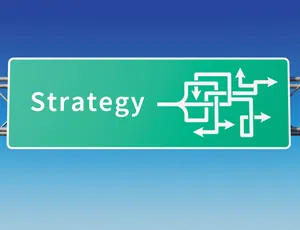Put the elements for succession planning into place with the proper team of professionals.
Most business owners are keenly aware that sometime down the road, they will need to either sell or transfer their company ownership; and while the ultimate decision to create an exit plan may be a solo endeavor, executing a successful succession plan requires a team of experts.
Go it alone, and you will likely leave a lot on the table in terms of money, time, and perhaps emotional well-being. It is in a business owner’s best interest to hire an experienced panel of professionals, including an attorney, CPA, and a financial planner. This team can help determine how much a business is worth today and how best to maximize its value for its future transfer or sale to a family member, employee, or third party.
Establish a Baseline with Financial Statements
The importance of financial statements cannot be overstated when going through the exit-plan process; demonstrating financial stability is a crucial step in establishing a successful exit. The CPA or other financial adviser you have retained will need to determine your company’s current situation, which will require the review of business tax returns for a minimum of the past two years.
He will also need to review the current financial statements of the business because they provide a clear picture of your current financial position — in effect gauging what has already been accomplished and what still needs to be completed to create a successful exit plan.
These all-important statements provide cash-flow information, which is used to determine the value of your business and the price it might be sold for. They also show historic earnings, cash-flow results, and trends that have been established over the years, creating an indicator of the company’s financial future.
For example, if you plan to sell your business during the first half of 2011, your CPA should have cash-flow projections for the remainder of that year, in addition to the years 2012 through 2015. Understand that these projections must be grounded in the reality of past actual performance, rather than your rosy hopes for the future.
The Valuation Process
The valuation process will provide you and your advisers with a good idea of what your company is worth. Regardless of whether your exit plan revolves around an internal transfer of ownership or sale to a third party, an independent valuation provides a solid basis for planning.
The last thing you want is to spend time and money planning your exit, only to discover that the value of your company can’t support the exit, either financially or time-wise. Evaluating various tax consequences also is paramount to your choice of exit plans. This assessment will include several factors, such as the form of business entity, and whether you sell the assets of the business or the stock of the corporation.
This is another area where that team of professionals can help in making a decision.
Nurturing Company Value
And here’s a factor that should not be overlooked — as a business owner with an eventual exit plan in mind, you must spend as much if not more time working on your company’s future as you do being involved in current daily operations. You need to drive value to create value.
It takes time, planning, and effort to increase cash flow, develop and improve operating systems, pay down debt, implement growth strategies, and build a strong management team. These are the fundamental elements that must be in place to ensure a smooth and lucrative exit plan.
Moreover, identifying key employees and having a strong management team in place are fundamental in creating an exit plan. These are the people who increase your cash flow today and whose work ethic will add value to your business when you’re ready to sell.
Remember, a company is only as good as the people who work there. Making arrangements for the “end” of a business you’re presently building can seem overwhelming. It’s not easy to think about the business you nurtured being in the hands of someone else. Plus, exit planning may seem too time-consuming, particularly when a business owner is still a couple years off from exodus and is inundated with the day-to-day tasks of running an operation.
But the time spent now to preserve and increase your company’s value will pay off. With the proper guidance and a firm grasp on realistic expectations, your exit plan could be the start of something very good — for your future and your employees’.
Bob O’Hara is President/CEO of O’Hara & Company, founded in 1995 to address the growing need for entrepreneurs to create a comprehensive exit strategy for their businesses. For more information, visit www.oharaco.com.



